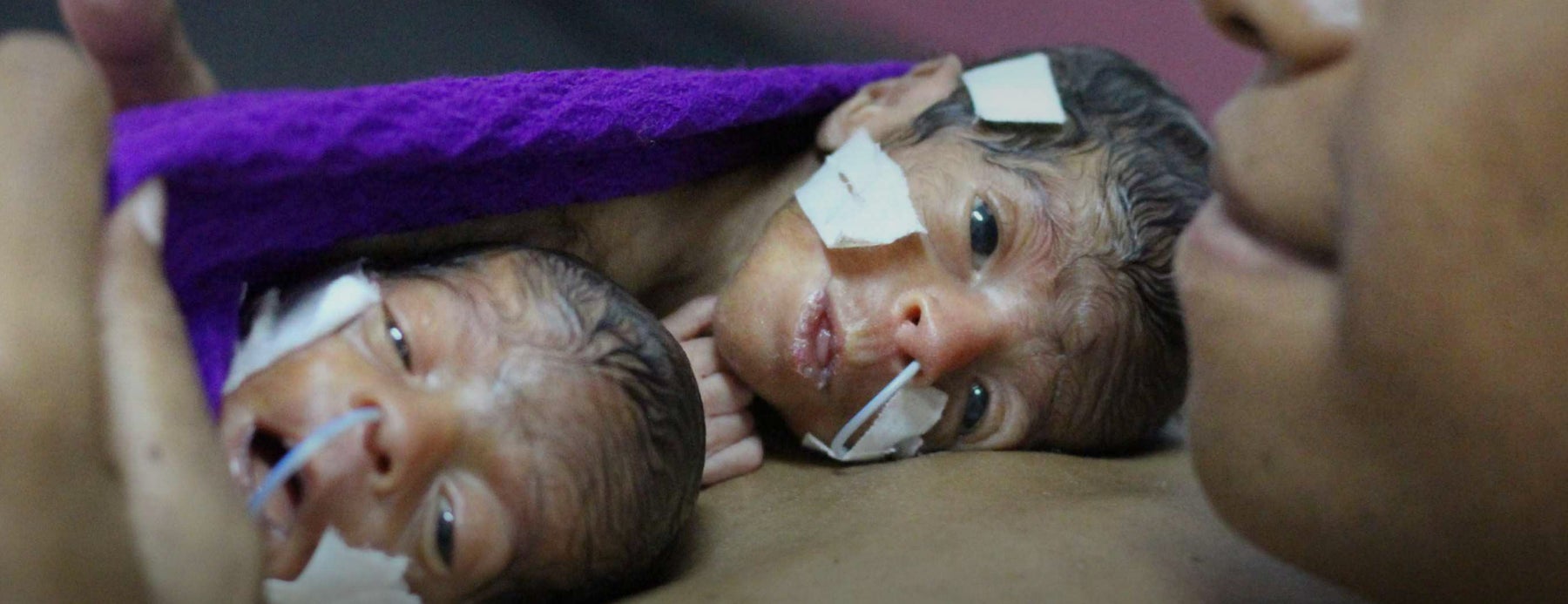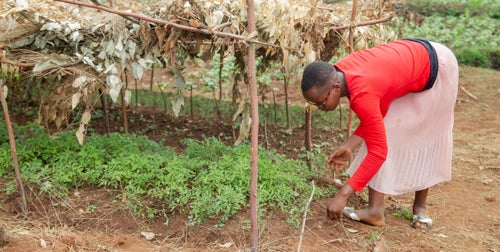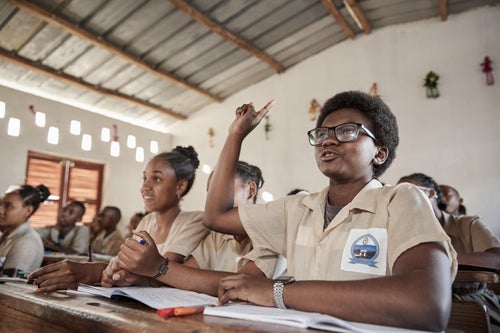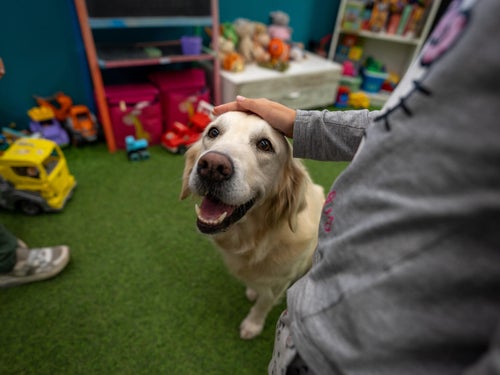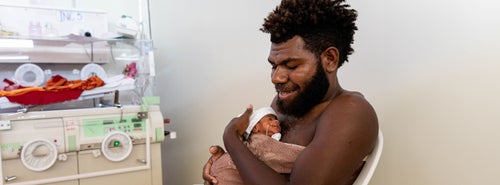Mary’s triplets were born three months early, in Papua New Guinea with no incubator to protect them from hypothermia. Health workers taught Mary this very simple technique that helped her babies to not only survive but thrive.
“I was bending down and trying to break recycled cans to sell them, and I started feeling contractions,” says Mary.
Sadly, she lost her second triplet. With no access to an incubator to keep her babies warm, the health workers told Mary to practice Kangaroo Care.
Skin-to-skin contact or Kangaroo Care with either the mother or father helps normalise the baby’s temperature, preventing some of the leading causes of death in premature infants, including hypothermia, infections, sepsis and breathing problems.
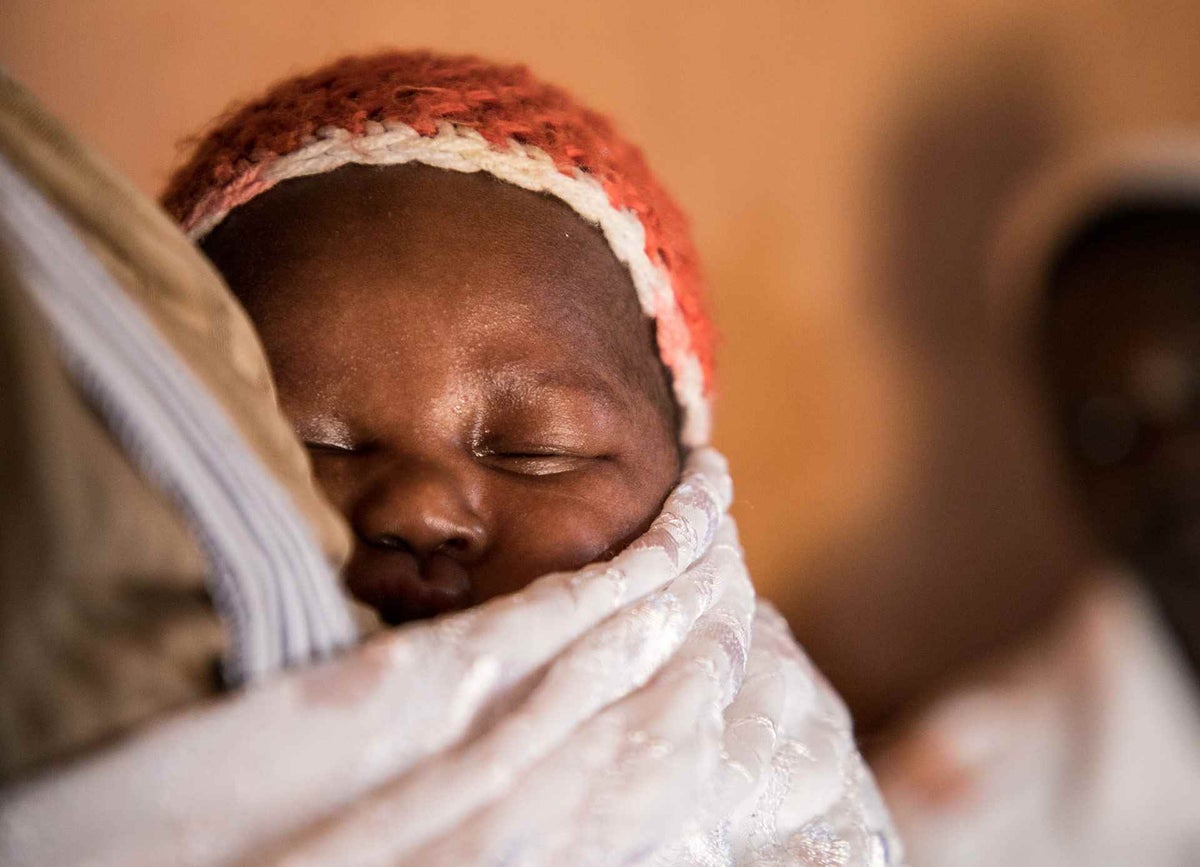
Kangaroo contact is a method developed in Colombia to help premature babies survive when incubators are not available or in short supply. Kangaroo Mother Care is an evidence-based intervention with demonstrated high impact on survival, brain development and quality of care. It has been shown to reduce mortality by up to 50 per cent in low birth weight newborns weighing less than 2000 grams when compared with conventional care.
This simple method also regulates heart rate, breathing and improves sleep patterns of infants, helps to promote frequent breastfeeding and start a long-lasting relationship between mother and baby.
The technique also increases the baby's growth, improves oxygen concentration and brain development. It empowers families to care for their small newborns and shortens their length of stay in hospital.
DONATE NOWUNICEF is working in health centres around the world to provide this simple alternative to incubators, having already procured 2,189 Kangaroo Care Kits for health centres in Papua New Guinea.
“After doing the Kangaroo Care with my two babies I am seeing a difference,” Mary says. “They are quiet on my chest and not irritable, they are gaining weight and they are getting stronger compared to how they were before.”
Due to the success of the program in Papua New Guinea, UNICEF Australia is supporting the launch of this program in Vanuatu. In Vanuatu, more than 11 babies out of 1,000 die in their first month of life. These vital supplies will give newborns in the region the best chance to survive and thrive.
The program is supported by generous Australian donors and the Australian Government through the PNGAusPartnership.
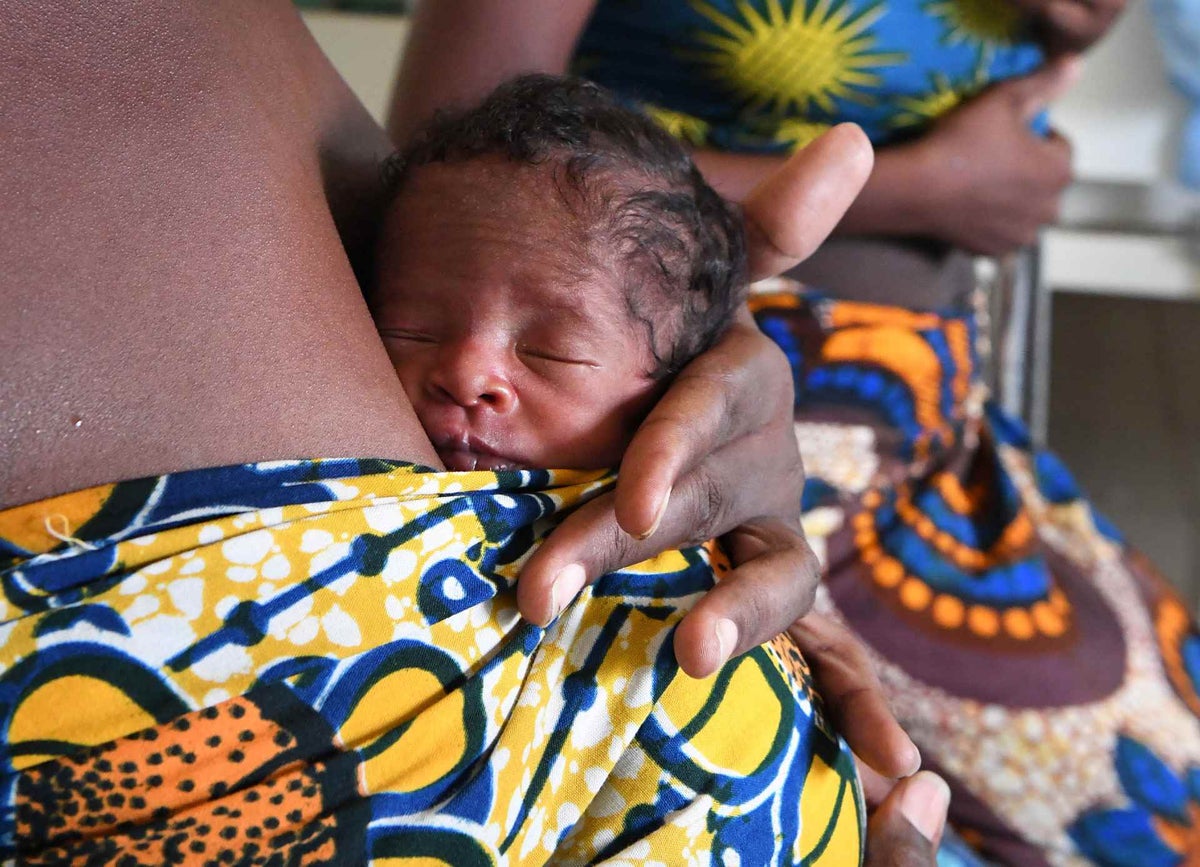
Related articles
Stay up-to-date on UNICEF's work in Australia and around the world



